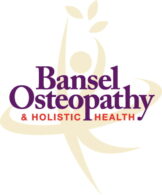Throughout our lives, our bones continuously change and remodel themselves. Most of us will reach our peak bone mass around the age of 30, at which point the balance tips from your body making more bone than it breaks down to slightly breaking down more bone than it makes.
The higher you can get your peak bone mass to, the more bone you have ‘in the bank’ and the less likely you are to develop osteoporosis – a condition that causes your bones to become weak and brittle.
Protecting and improving your bone health is easier than you think, here are some top tips to help!
1. Make sure you are getting enough of the right nutrients!
• Calcium is essential for healthy, strong bones. The recommended daily calcium requirement for an adult is 1000mg and increases to 1200mg in women over 51 and men over 71. Good food sources of calcium include; dairy products, almonds, broccoli, kale, canned fish, and soy products such as tofu, sesame seeds/tahini and dried fruit.
• Vitamin D is needed for your body to absorb calcium efficiently and studies have recently shown that pretty much the whole population is vitamin D deficient. The recommended daily vitamin D requirement for an adult up to the age of 70 is 600IU, over 70s should take 800IU daily. Good sources of vitamin D include oily fish, mushrooms, eggs and fortified foods and skin exposure to sunlight (30 minutes a day without sunscreen).
• Magnesium is also essential for healthy strong bones. The recommended daily magnesium intake for an adult is 310-320mg for women and 400-420mg for men. Good food sources for magnesium are green leafy vegetables, almonds, cashews, brazil nuts, legumes, tofu, seeds, whole grains, bananas, dark chocolate and avocados.
• Protein is an essential component in your bone matrix-a scaffold-like structure that calcium and phosphorous bind onto to form your bone’s support. The amount of protein required by each individual is variable depending on your weight, you can work out how much protein you need by multiplying your weight in pounds by 0.36. Good food sources of protein include dairy products, fish, poultry, legumes, whole grains, nuts and seeds.
If you are worried about not getting enough of these nutrients via food sources, supplementation is a very good alternative. You can speak to your GP if you are concerned or pop into the clinic and either Jasi or Hiisha will be able to advise you.
2. Get enough of the right type of exercise!
To increase bone density, the exercise you choose to do must be weight-bearing. Examples of this type of exercise include walking, jogging, climbing stairs, jumping, skipping and hopping; while swimming or biking is good for building muscle strength and improving cardiovascular health, they don’t directly increase bone mass.
The current guidelines to affect bone are:
• For those without osteoporosis and most people with osteoporosis but no active fracture(s), you should aim for 50 moderate impacts on most days.
• If you do have spinal fractures or are unable to do moderate exercise, you should aim for 20 minutes of lower impact exercise on most days.
• If you are unable to do regular exercise, try to avoid prolonged sitting and aim to stand up for a few minutes every hour.
You should also include some muscle strengthening exercises as this will increase bone density at the site of the muscle-tendon insertions onto the bone.
You should aim to do this 2-3 times a week on non-consecutive days using resistance bands and weights (weight or resistance should be determined by the heaviest you can lift eight to 12 times comfortably) and target exercises for your legs, arms and spine. As your strength builds up, try to do 3 sets of each exercise.
3. Reduce your tobacco and alcohol consumption!
Smoking and drinking alcohol (more than one drink daily for a woman and two for a man) have been shown to contribute to weaker bones.
4. Make sure your hormones are in balance!
High-stress hormones, thyroid imbalances, low oestrogen and low testosterone can all result in premature bone loss. To check if your hormone levels are ok, you can speak to your GP about getting a blood test or book a kinesiology appointment with Jasi or Hiisha to assess them for you.
5. Check your family medical history!
Osteoporosis can run in families, if it runs in yours, you should speak to your GP to arrange a bone density scan and discuss early preventative intervention if needed.

